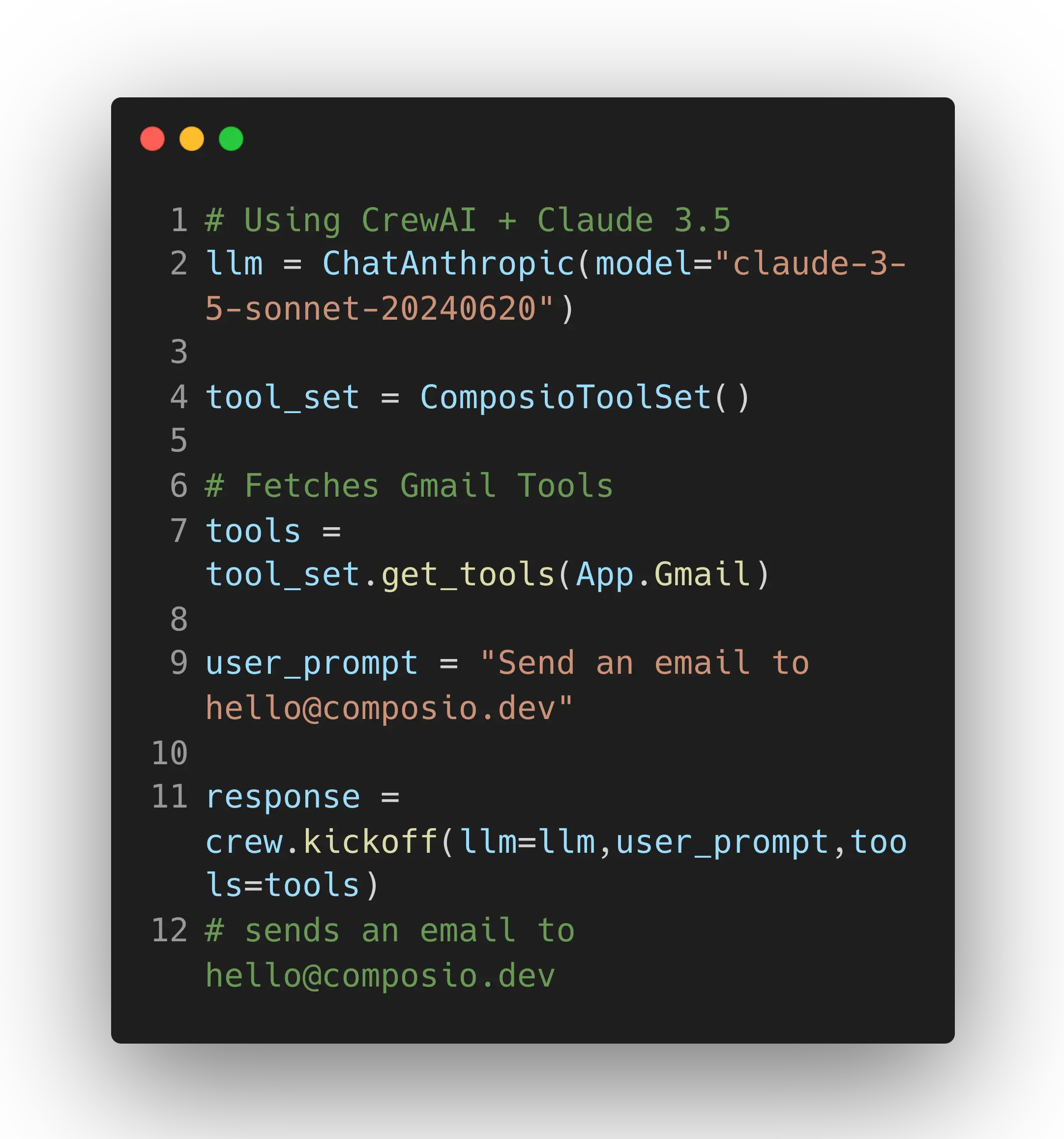Composio
Composio simplifies AI agent development with over 100 integrated tools, supporting multiple programming languages and authentication protocols.
What is Composio?
Composio is an AI agent development assistant tool that offers over 100 integrated tools, simplifying the development and deployment of AI agents. It allows developers to call various tools and frameworks, such as OpenAI, Claude, and LlamaIndex, with just one line of code. Composio supports multiple programming languages, provides a rich API and plugin system, and supports various authentication protocols. It aims to enhance the practicality and interactivity of AI assistants, making it suitable for scenarios like automated software development, content management, and data management, helping developers build and manage efficient AI agents.
Key Features of Composio
- Tool and Framework Integration: Supports over 100 tools, including software, operating systems, browsers, search and development tools, as well as integrations with AI frameworks like OpenAI, Claude, and LlamaIndex.
- Simplified Development: Allows calling various tools and frameworks with just one line of code, greatly simplifying the development process of AI assistants.
- Authentication Management: Supports multiple authentication protocols, including AccessToken, RefreshToken, OAuth, APIKeys, JWT, etc., simplifying integration with different applications.
- Retrieval-Augmented Generation (RAG): Provides RAG functionality for dynamic data, enhancing the information retrieval capabilities of AI assistants.
- Software Integration: Executes operations on over 90 platforms, including GitHub, Notion, Linear, Gmail, Slack, Hubspot, and Salesforce.
- Browser Features: Offers intelligent search, screenshots, multi-tab operations, downloads, and uploads.
- Software Engineering Support: Includes development tools like Ngrok, databases, Redis, Vercel, and Git.
- Multi-language and Framework Support: Supports multiple programming languages and frameworks like Python and JavaScript, making it easy to extend and integrate.
Technical Principles of Composio
- Integration and Abstraction: Composio provides an integration layer that abstracts interactions with various applications and services, allowing developers to focus on building the core functionality of AI assistants without dealing with underlying integration details.
- Authentication Protocols: Supports multiple authentication protocols like OAuth, API Keys, JWT, etc., which are abstracted so that AI assistants can securely interact with different services on behalf of users.
- API Support: Composio offers a rich API, allowing developers to easily integrate external tools and services into AI assistants.
- Plugin System: It uses a pluggable plugin system, meaning new tools, frameworks, and authentication protocols can be easily added to the platform to support more features.
- Embeddability and White-label Support: Composio can be embedded into the backend of applications, enabling white-label management.
Application Scenarios of Composio
- Automated Software Development Processes: Automates the creation and management of GitHub repositories, code reviews, and testing processes.
- Content Management: Manages the publishing of blog and website content, automates social media postings.
- Data Management: Automates data collection, organization, and analysis, as well as the management of databases and file storage.
- Customer Service: Provides automated customer support and help, manages customer feedback and ticketing systems.
- E-commerce: Automates order processing and inventory management, and manages product listings and pricing in online stores.
Features & Details
Tags
AI Development
Tool Integration
API
Authentication
AI Agents
Developer Tools
Automation
Programming
Frameworks
Data Management
Usage & Integration
Pricing
freemium
API Access
Available
Example Uses
- Automated software development
- Content management
- Data management
- Customer service
- E-commerce
Screenshots & Images
Primary Screenshot
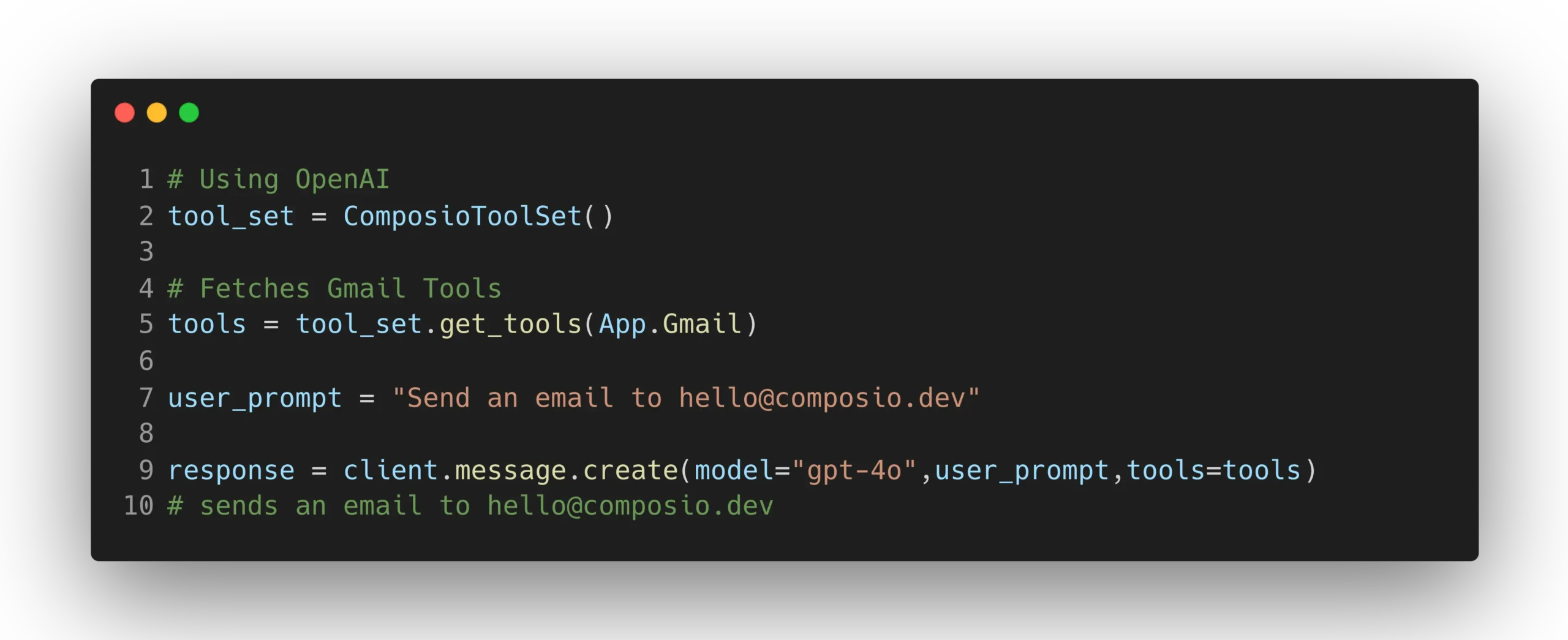
Additional Images
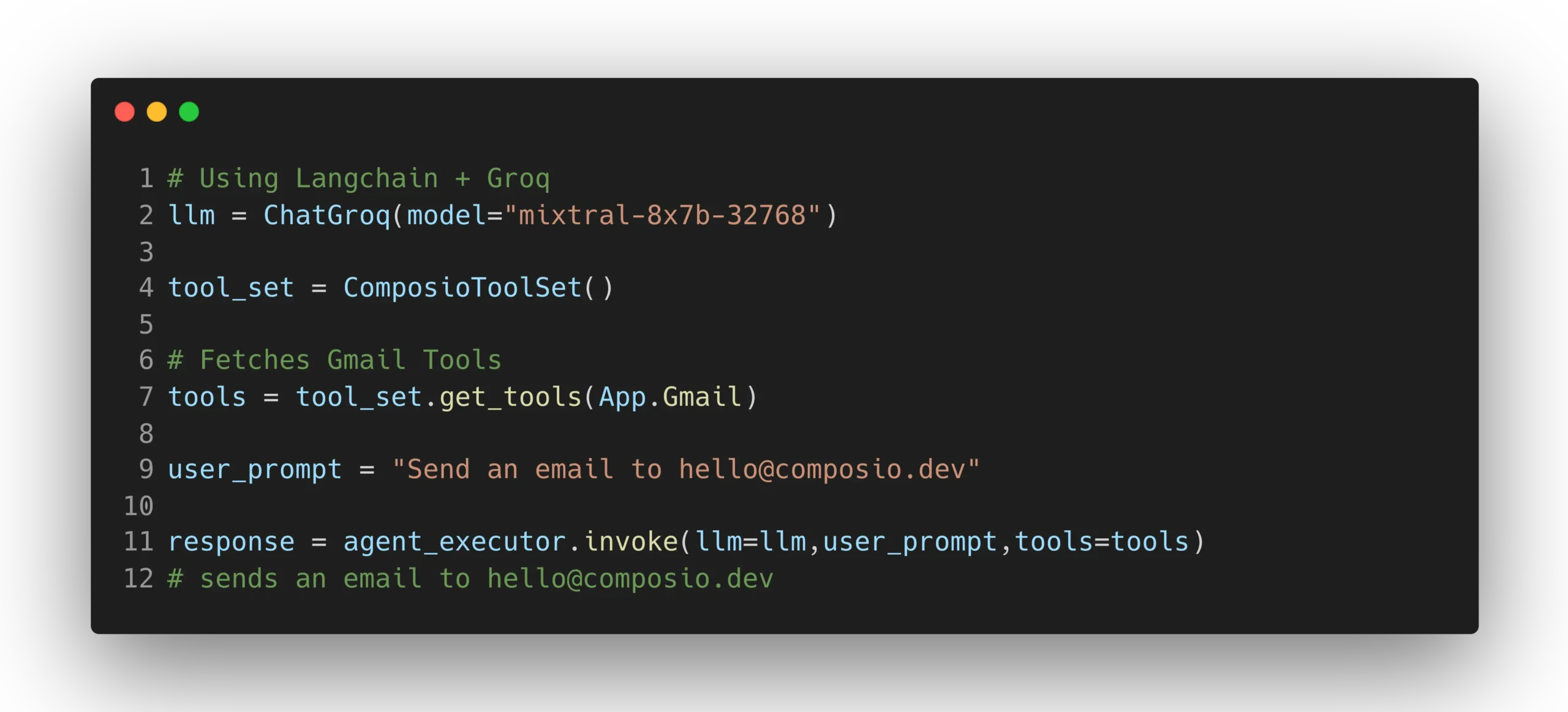
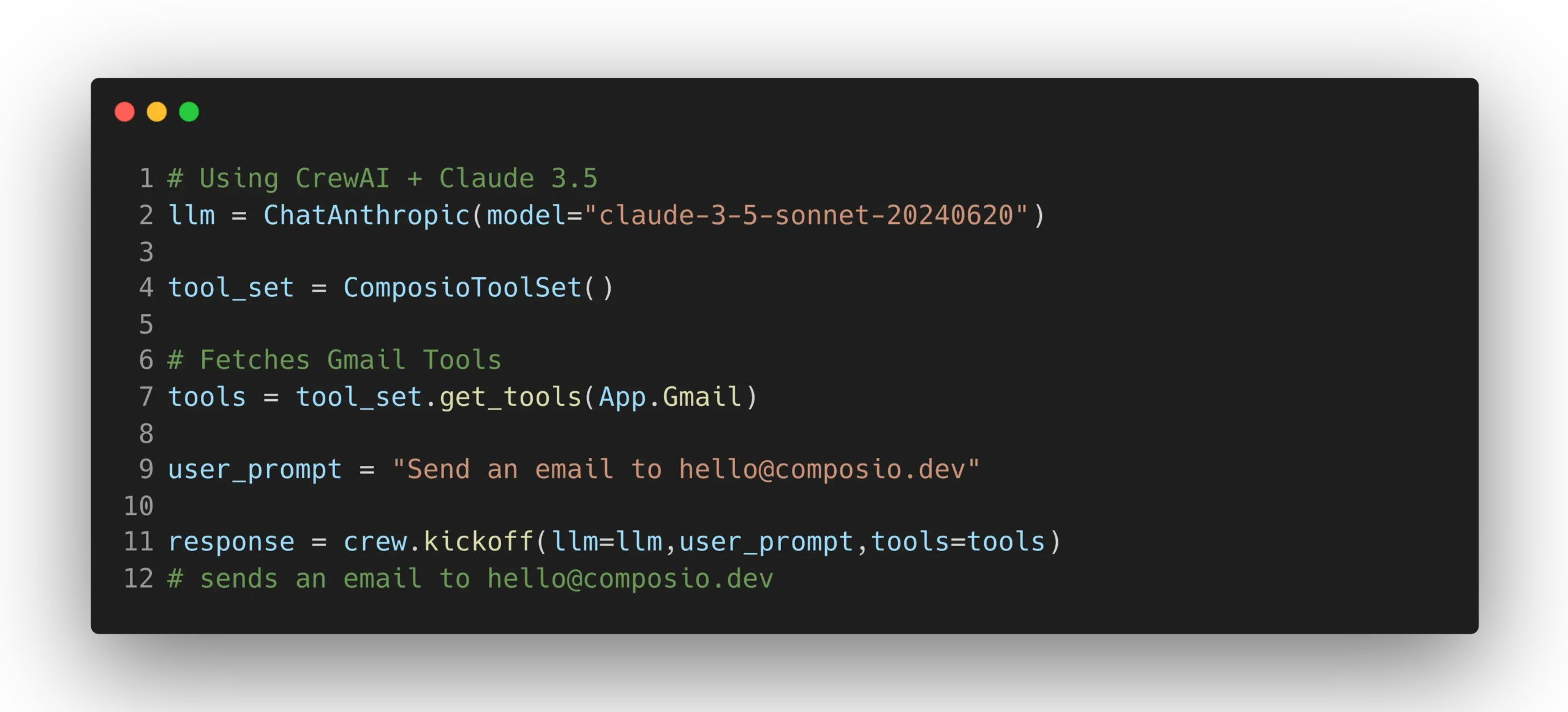
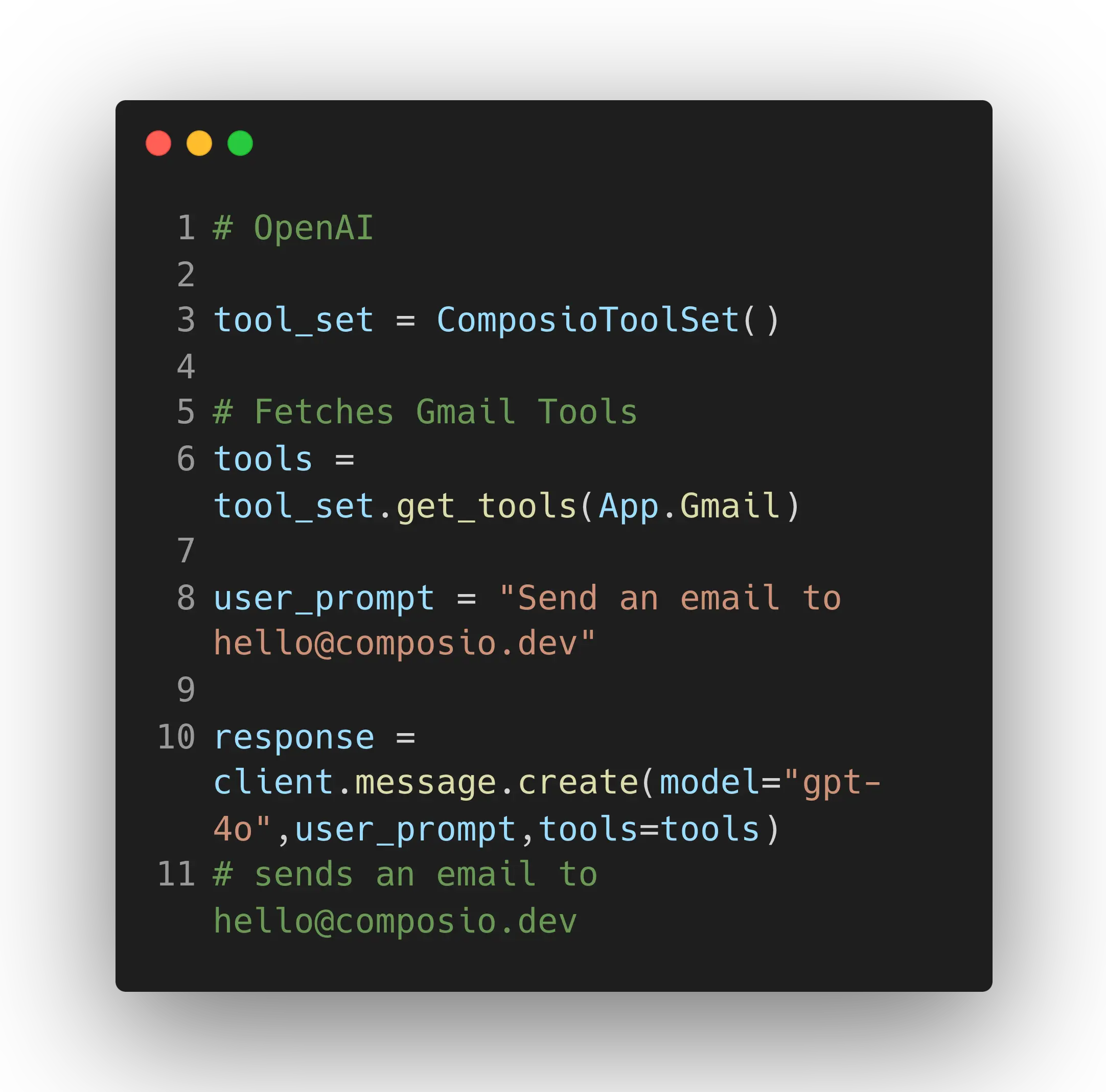
Stats
522
Views
0
Favorites
